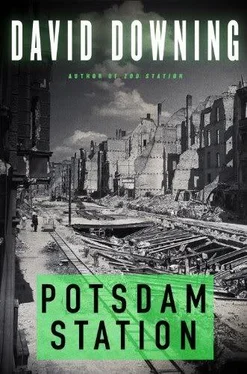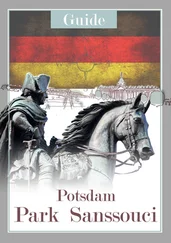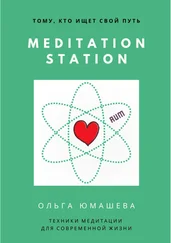David Downing - Potsdam Station
Здесь есть возможность читать онлайн «David Downing - Potsdam Station» весь текст электронной книги совершенно бесплатно (целиком полную версию без сокращений). В некоторых случаях можно слушать аудио, скачать через торрент в формате fb2 и присутствует краткое содержание. Жанр: Шпионский детектив, на английском языке. Описание произведения, (предисловие) а так же отзывы посетителей доступны на портале библиотеки ЛибКат.
- Название:Potsdam Station
- Автор:
- Жанр:
- Год:неизвестен
- ISBN:нет данных
- Рейтинг книги:5 / 5. Голосов: 1
-
Избранное:Добавить в избранное
- Отзывы:
-
Ваша оценка:
- 100
- 1
- 2
- 3
- 4
- 5
Potsdam Station: краткое содержание, описание и аннотация
Предлагаем к чтению аннотацию, описание, краткое содержание или предисловие (зависит от того, что написал сам автор книги «Potsdam Station»). Если вы не нашли необходимую информацию о книге — напишите в комментариях, мы постараемся отыскать её.
Potsdam Station — читать онлайн бесплатно полную книгу (весь текст) целиком
Ниже представлен текст книги, разбитый по страницам. Система сохранения места последней прочитанной страницы, позволяет с удобством читать онлайн бесплатно книгу «Potsdam Station», без необходимости каждый раз заново искать на чём Вы остановились. Поставьте закладку, и сможете в любой момент перейти на страницу, на которой закончили чтение.
Интервал:
Закладка:
'And here we have the come-uppance,' he murmured to himself, as he began the long walk back. Two more hours of screeching shells and sudden flares, of wending his way through ruins and evading the occasional patrol, and he was back in the abandoned station. Varennikov was already asleep, so Russell pinched out the still-burning candle and laid himself out on his bed. He had probably walked further in the last five days than in all the five years that preceded them, and he felt completely exhausted.
Eyes closed, he suddenly remembered Kuzorra again. If the detective still worked at the 'Alex' police headquarters he would have access to arrest records. But how could he could be contacted? Yorck Strasse April 24 – 26 S oon after dawn Ivan announced himself with an artillery barrage, shattering every window that overlooked the Teltowkanal and blinding several of the divisional lookouts. A katyusha barrage followed, blasting holes in brickwork, cratering towpaths and sending up huge spouts of water. Fires broke out in several buildings, but were all put out with buckets of canal water collected the previous day. A steady stream of wounded disappeared in the direction of the field hospital three streets to the north.
The two nearest bridges had both been destroyed in the night, but there was still no sign of Soviet tanks on the far bank. They'd lose a lot of men getting across, Paul reckoned, but that had never worried their commanders in the past. He wondered if ordinary Russian soldiers were, like their German counterparts, becoming more survival-conscious as the war entered its final days.
Not that it would matter to him. The Russians would fight their way across this canal sooner or later, just as they had every watercourse between the Volga and Berlin. Just as their comrades moving in from the north would fight their way across the Hohenzollernkanal and Spree. And when they all came together the shouts of 'hurrah' would ring through the wastes of the ravaged Tiergarten. Nothing could stop them now, so why try?
Paul wasn't sure he knew. It wasn't the fear of being hanged as a deserter that stopped him from slinking away, though he realised it was a distinct possibility. Nor was it any great sense of responsibility to his current comrades, most of whom were complete strangers. It was more a case of having nowhere to go. When the war began he'd had two sets of parents, a home, a city and a country. All were broken or gone.
His relief on watch arrived, a boy named Ternath with floppy blonde hair and glasses with one cracked lens. Paul made his way to the back of the building, where the rest of his platoon were gathered in relative safety. Werner was sitting on the wooden floor, his back against the far wall, a ferocious scowl on his face as he tried to make sense of the morning newssheet. Paul found himself hoping that the boy's mother and sister were still alive. Some people had to be, even in Berlin.
He was halfway across the room when a wind half lifted him up and almost threw him at the opposite wall. As he slowly picked himself up the sound of the explosion was still rippling in his ears.
Another shell exploded, this time further away. 'Ternath,' someone shouted, and they all rushed lemming-like across the corridor and into the empty machine room which overlooked the canal. The shell had taken out a large chunk of wall, some ten metres down from the window they'd been using. Ternath had been hit by the blast, and by any number of flying bricks, but his head and limbs were still apparently attached to his body. Blood was pouring from several cuts, but no severed artery was fountaining life away. Even his decent lens was stil in one piece. He'd been lucky, and Paul told him so.
'I'm alive?' the boy whispered, in a tone that suggested this might be a mixed blessing.
A stretcher appeared, and Paul, having just completed his watch, was one of the obvious bearers. Werner grabbed the other handles, and they carried the wounded man across the building and down a wrought-iron fire-escape to the roadside yard. The nearest dressing station was two streets away. It had been set up in an infant school basement, but was already overflowing onto the ground floor. Heading for the stairs, they passed two classrooms carpeted with occupied stretchers.
Down in the basement, candles provided most of the lighting. A triage nurse in bloodstained overalls gave Ternath a quick examination, and told them where to leave him. 'He'll live,' she said curtly, and moved on to the next. As he gave the boy a last encouraging look, Paul didn't feel so sure. The last time he'd seen eyes like that, the man had died an hour later.
Walking back towards the stairs, he saw an amputation underway through an open doorway. Across the table from the saw-wielding surgeon a man was crouched beside a bicycle, pedalling with both hands to power the handlebar light. A moment later the ceiling shook as the first rocket of a katyusha barrage landed somewhere close by. The surgeon glanced upwards, then quickly leant forward to shield the open wound from falling masonry dust.
The barrage continued for about five minutes, but no other rocket fell so close. On the ground floor the two classrooms full of stretchers had miraculously escaped, but several of the immobilised men were now whimpering with fear. Outside, the street was cloaked in swirling dust and smoke. Hurrying back towards the canal, they heard a woman shouting over crackling flames, but couldn't see a fire.
One or more rockets had hit their building, taking a room-size chunk out of the western end. The team had moved down a few rooms, and was setting up the sandbags by another south-facing window. There was a major looking out over their shoulders, a man that Paul hadn't seen since the January retreat. His name was Jesek, and he had a good reputation, at least among his subordinates. He was one of the old school, a bit of a stickler for the rules, but someone who cared what happened to the men in his charge.
His eyes now fixed on Werner, first taking in the baby face, then the bloodstained Hitlerjugend uniform. 'Name?' he asked without preamble
'Werner Redlich, sir.'
'And how old are you?'
Werner hesitated. 'He's fourteen,' Paul volunteered.
'I'll be fifteen next week,' Werner added.
Major Jesek sighed, and stroked two fingers down his left cheek. 'Are you from Berlin?'
'Yes, sir. From Schoenberg, sir.'
'Werner, I don't want you to take this the wrong way – I'm sure you've been a brave soldier – but I don't believe children belong in battle. I want you to take off that uniform and go home. Do you understand me?'
'Yes, sir,' Werner said, his face torn between hope and anxiety.
Once Jesek was gone, he turned to Paul. 'You won't think I'm a coward?'
'Of course not. The major's right. You go home and look after your family.'
Werner looked down at his uniform. 'But I have no other clothes.'
'Go back to the dressing station. They'll have something you can wear.'
Werner nodded. 'Can we meet again when this is over?' he asked.
Paul smiled. 'What's your address?'
The boy gave it to him, and they shared a farewell embrace. Werner hoisted up his panzerfaust rocket-launcher out of habit, then gently put it back down. He gave the rest of the men a shy wave and was gone.
Paul sat down with his back against the wall, feeling pleased for the boy but sad for himself. He had enjoyed the company.
Russell's day went badly from the start. He woke from a nightmare, Varennikov shaking him by the shoulder and shouting his name. He'd been in France, in the trenches, his head swinging left and right like a tennis spectator, watching shells explode on either side, throwing up sprays of blood like waves coming over a promenade wall. And all in perfect silence, except that church bells were tolling in the distance, and he was screaming for them to stop.
Читать дальшеИнтервал:
Закладка:
Похожие книги на «Potsdam Station»
Представляем Вашему вниманию похожие книги на «Potsdam Station» списком для выбора. Мы отобрали схожую по названию и смыслу литературу в надежде предоставить читателям больше вариантов отыскать новые, интересные, ещё непрочитанные произведения.
Обсуждение, отзывы о книге «Potsdam Station» и просто собственные мнения читателей. Оставьте ваши комментарии, напишите, что Вы думаете о произведении, его смысле или главных героях. Укажите что конкретно понравилось, а что нет, и почему Вы так считаете.












